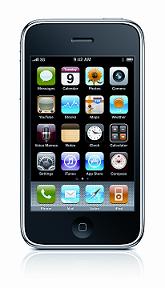Mark Bridge writes:
A few months ago I was at the launch of DataWind’s UbiSurfer netbook, a device that includes 12 months of internet access with the surprisingly low purchase price. A light-hearted presentation compared its web access with the Apple iPhone’s “there’s an app for that” TV campaign – and reminded us that many popular web-based iPhone apps cost money whilst web pages were free to access. Pay for a currency converter – or access one online for nothing. Pay for a train timetable application – or go to the mobile web for free.
Commonsense may send consumers straight to the web… but convenience and marketing has still sent plenty to the Apple App Store, which celebrated two billion downloads recently. I didn’t think much more about this until I saw a report in Newsweek a few days ago. It suggested that app developers aren’t getting rich from their work, despite receiving 70% of the money charged by Apple’s App Store (and most competing app stores, too). Instead, many aren’t making any profits at all.
 We’re now seeing more and more big name brands heading for the app store; last year half of the Apple App Store’s top 10 chargeable apps were from independent developers – a figure that had fallen to just one in ten when Newsweek published its report. This has led to app prices falling: big brands are happy to give away some applications as part of a larger marketing initiative. Of course, there are other devices and other app stores available – but it’s not inconceivable that the same will happen to them.
We’re now seeing more and more big name brands heading for the app store; last year half of the Apple App Store’s top 10 chargeable apps were from independent developers – a figure that had fallen to just one in ten when Newsweek published its report. This has led to app prices falling: big brands are happy to give away some applications as part of a larger marketing initiative. Of course, there are other devices and other app stores available – but it’s not inconceivable that the same will happen to them.
The combination of all this struck me yesterday with what’s perhaps one of the first examples of a new kind of commonsense “app for that”. UK rail franchise CrossCountry has launched Train Search for the iPhone; an application that’s free to download… unlike the National Rail app, for example.
It’s a sensible solution for everyone – which leaves me wondering why the whole web application business didn’t start here in the first place.